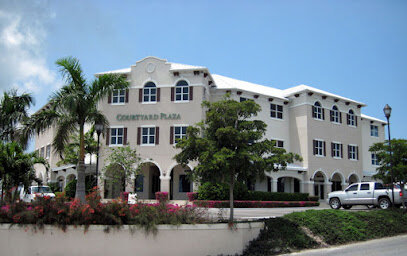Best Work Permit Lawyers in Turks and Caicos Islands
Share your needs with us, get contacted by law firms.
Free. Takes 2 min.
Or refine your search by selecting a city:
List of the best lawyers in Turks and Caicos Islands
About Work Permit Law in Turks and Caicos Islands:
Work Permit laws in Turks and Caicos Islands regulate the employment of non-Turks and Caicos Islanders. Employers are required to obtain a work permit for foreign employees to work in the country. The Department of Work Permit is responsible for processing work permit applications and ensuring compliance with the law.
Why You May Need a Lawyer:
You may need a lawyer to assist you with the work permit application process, handle legal disputes related to work permits, or provide legal advice on immigration laws in the Turks and Caicos Islands. A lawyer can help ensure that your rights are protected and that you are in compliance with local laws.
Local Laws Overview:
Key aspects of local laws related to work permits in Turks and Caicos Islands include the requirement for employers to obtain work permits for foreign employees, restrictions on certain types of work for non-residents, and penalties for non-compliance with work permit regulations.
Frequently Asked Questions:
1. Who needs a work permit in Turks and Caicos Islands?
All non-Turks and Caicos Islanders who wish to work in the country need to obtain a work permit.
2. How long does it take to process a work permit application?
The processing time for work permit applications varies, but it typically takes a few weeks to several months.
3. What are the requirements for obtaining a work permit?
Requirements for work permits include a job offer from a local employer, proof of qualifications and experience, and compliance with local immigration laws.
4. Can a work permit be renewed?
Yes, work permits can be renewed, but the renewal process must be initiated before the current permit expires.
5. What are the penalties for working without a work permit?
Working without a work permit is illegal and can result in fines, deportation, and legal consequences for both the employee and the employer.
6. Can a work permit be transferred to a new employer?
Work permits are typically tied to a specific employer, so a new work permit may be required if changing employers.
7. Are there any restrictions on the type of work non-residents can do?
Yes, there are certain types of work that are restricted for non-residents, such as jobs in the healthcare or education sectors.
8. Can a spouse or dependent of a work permit holder work in Turks and Caicos Islands?
Spouses and dependents of work permit holders may be eligible to work in the country, but they would need to obtain their own work permit.
9. How can I appeal a work permit decision?
If your work permit application is denied, you may have the right to appeal the decision through the appropriate channels outlined by the Department of Work Permit.
10. How can a lawyer help with my work permit application?
A lawyer can assist you with preparing your work permit application, ensuring compliance with local laws, and representing you in any legal matters related to work permits in Turks and Caicos Islands.
Additional Resources:
For more information on work permits in Turks and Caicos Islands, you can visit the official website of the Department of Work Permit or consult with a local immigration lawyer for legal advice.
Next Steps:
If you require legal assistance with a work permit in Turks and Caicos Islands, consider seeking advice from a qualified immigration lawyer who can guide you through the process and protect your rights under local laws.
Lawzana helps you find the best lawyers and law firms in Turks and Caicos Islands through a curated and pre-screened list of qualified legal professionals. Our platform offers rankings and detailed profiles of attorneys and law firms, allowing you to compare based on practice areas, including Work Permit, experience, and client feedback.
Each profile includes a description of the firm's areas of practice, client reviews, team members and partners, year of establishment, spoken languages, office locations, contact information, social media presence, and any published articles or resources. Most firms on our platform speak English and are experienced in both local and international legal matters.
Get a quote from top-rated law firms in Turks and Caicos Islands — quickly, securely, and without unnecessary hassle.
Disclaimer:
The information provided on this page is for general informational purposes only and does not constitute legal advice. While we strive to ensure the accuracy and relevance of the content, legal information may change over time, and interpretations of the law can vary. You should always consult with a qualified legal professional for advice specific to your situation.
We disclaim all liability for actions taken or not taken based on the content of this page. If you believe any information is incorrect or outdated, please contact us, and we will review and update it where appropriate.
Browse work permit law firms by city in Turks and Caicos Islands
Refine your search by selecting a city.












